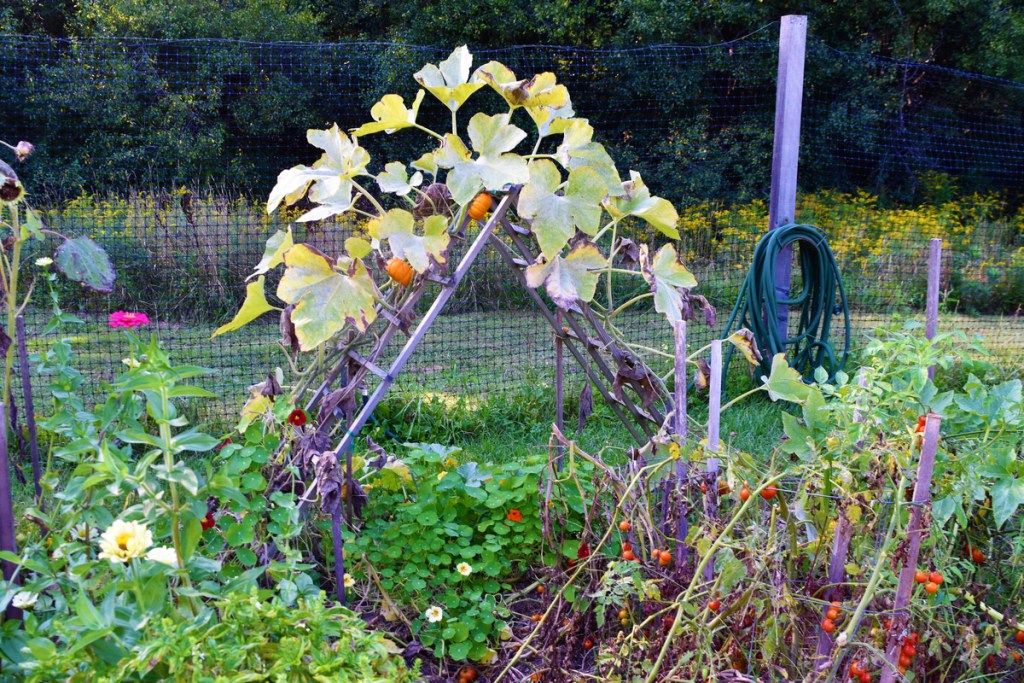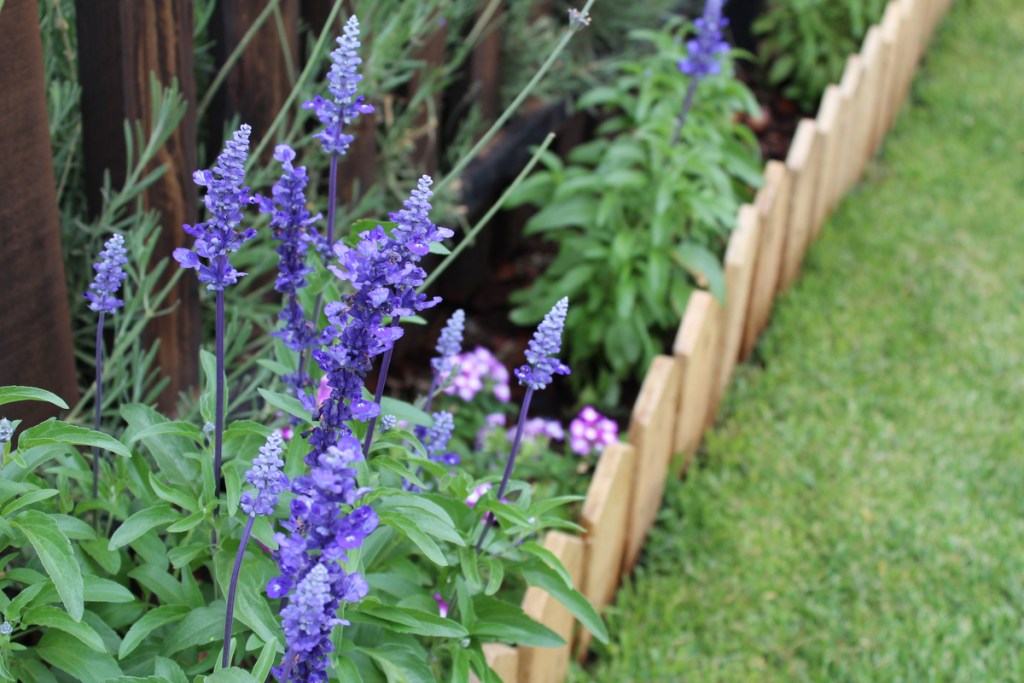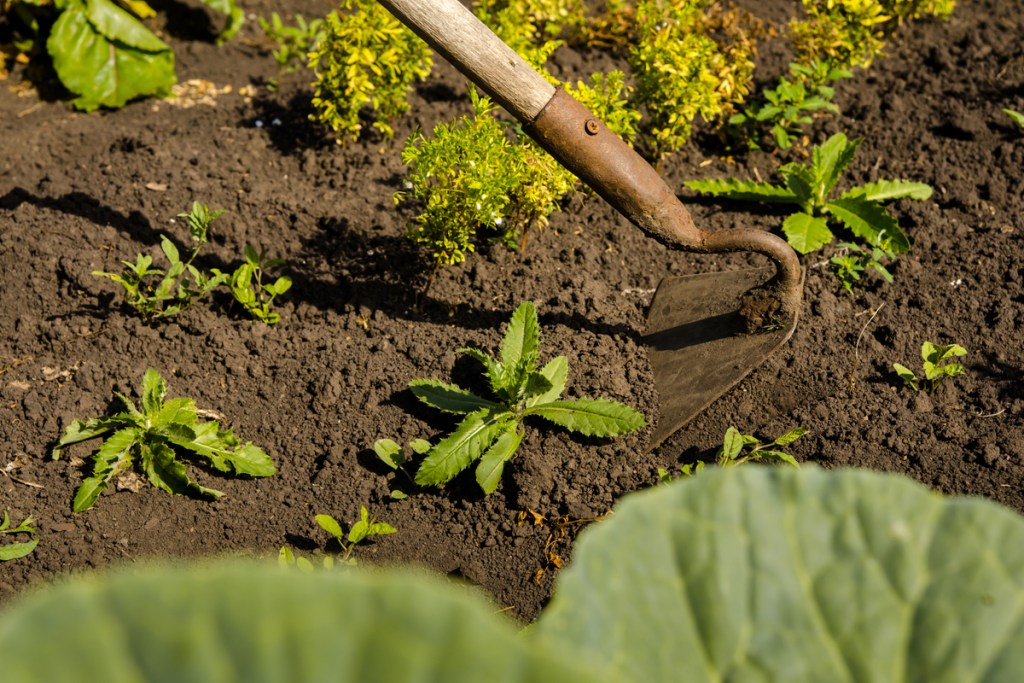National Weed Your Garden Day comes only once a year, on June 13, but garden maintenance happens every day. Whether you’re preparing to put in extra work for the holiday or just looking for some quick tips, this list of our top 10 favorite garden maintenance tips and tricks is here to give you a hand! These tips will work for you no matter the size of your garden or the amount of experience you have, so go ahead and give them a try.
- Get your garden off the ground
- Know the early signs of plant diseases
- Capsaicin keeps pests, not pollinators, away
- Harvest in waves, not all at once
- Pay attention to your hardiness zone
- Borders work wonders for pest control
- Test your soil regularly
- Weed with a hoe in open gardens
- Use mulch as weed control
- Hand weed in dense gardens
Get your garden off the ground
Protect your garden from pests, increase your harvest quality and quantity, and keep your plants healthier in general by getting your plants away from the ground. Trellises and vertical gardens are the best way to achieve this, but raised garden beds will also provide some benefits. Pests have more difficulty getting to your plants and vegetables in the air, which are less prone to rotting and fungal infections.

Know the early signs of plant diseases
Although different diseases have different warning signs, there are a few general things you can look for. Keep a keen eye out for any changes in the color or texture of your plant, especially if they happen suddenly. Look for smaller than average leaves or leaves that are misshapen. If one plant shows signs of disease, infection, or deficiency, carefully inspect your other plants, too. Noticing the early signs and acting quickly can be the difference between losing one plant and losing all of them.
Capsaicin keeps pests, not pollinators, away
Many pesticides harm pollinators along with pests, which can leave your garden worse off than if the pests had been left alone. Capsaicin, though, is a little bit different. Capsaicin is the chemical in peppers that makes them spicy, and spraying some on the leaves of your plants can dissuade insects and even mammals from taking a bite. Since it keeps insects from biting the leaves, it protects your plants from pests without harming pollinators.
Harvest in waves, not all at once
We typically think of harvesting as happening all at once, but did you know that picking a little at a time as fruits or vegetables ripen can actually increase your harvest? Some plants will produce more fruits as the mature ones are taken, which can keep your plant producing beyond what it otherwise would. Cucumbers in particular can benefit from this type of harvesting, but they aren’t the only ones!
Pay attention to your hardiness zone
Hardiness zones are commonly included in many plant care guides, from long articles to the tiny tags that garden centers stick in the soil of potted plants. It can be easy to tune them out as background noise or buzzwords, but they’re actually very important. Hardiness zones are an easy way to tell which plants will thrive in your region and which won’t survive. They can also help with timing your planting.

Borders work wonders for pest control
Pests can’t eat your plants if they can’t get to them. Flying pests are more difficult to keep away, but many crawling pests can be kept out with a garden border. Anything can be used as a border as long as it’s weather safe. You want it to extend several inches up and down, to stop burrowing insects and keep it from being knocked over. A border of bare earth, kept free from all foliage, can also dissuade some crawling insects from finding your plants.
Test your soil regularly
The easiest way to avoid a lot of common garden problems is to test your soil regularly. If you know what your soil quality is, what levels of nutrients it has, and what the pH is, then you know what plants will thrive in your garden and be aware of any potential issues before they arise. A simple soil test can alert you to nutrient deficiencies or excesses before your plants start to feel the effects.
Weed with a hoe in open gardens
If the plants in your garden are spaced out, it’s easier to weed with a hoe than by hand. You may want to wait until your plants are big enough that you can easily see the difference between them and weeds, but otherwise you can hack away. Hoes make it easy to get the roots of the weeds along with the rest of the plant, and they’re great for taking care of a lot of weeds at once.

Use mulch as weed control
Mulch has a lot of benefits, including keeping the roots of your plants warm during winter and increasing water retention — but it’s also handy for keeping weeds at bay. A thick layer of mulch around your plants keeps the weeds from seeing sunlight and from taking precious nutrients away from your plants.
Hand weed in dense gardens
If your plants are growing close together or have large leaves, then it’s much better to hand weed. Weeding with a hoe in a dense garden could lead to accidentally damaging one of your plants. Try to get as much of the roots as possible, and, once they’re out, keep them away from dirt to avoid reseeding. You can compost weeds, but not the seedheads or roots or else they might regrow.
Those are our top 10 tips for maintaining your garden on National Weed Your Garden Day and every other day. There are a wide range of ways to care for your garden, but this list is a great starting place. With time, patience, and these tips, you can have the garden of your dreams bursting with life. So get out there, get planting, and enjoy your garden!
Editors' Recommendations
- What you need to know about deadheading in your garden
- Add heliotrope to your garden for stunning purple flowers all summer long
- 18 incredible morning shade plants that will thrive in your shady garden
- Protect your sanctuary with these amazing garden fence ideas
- These are our favorite biennial flowers for a garden




